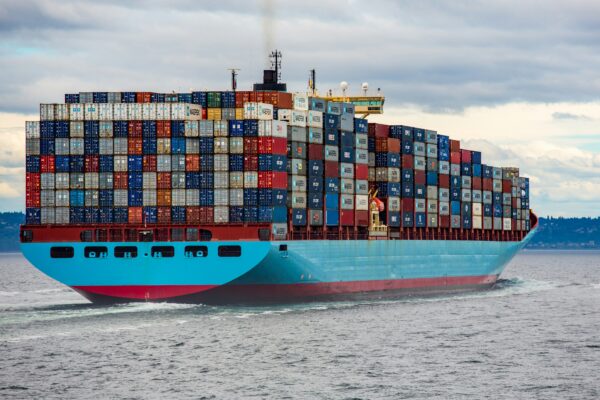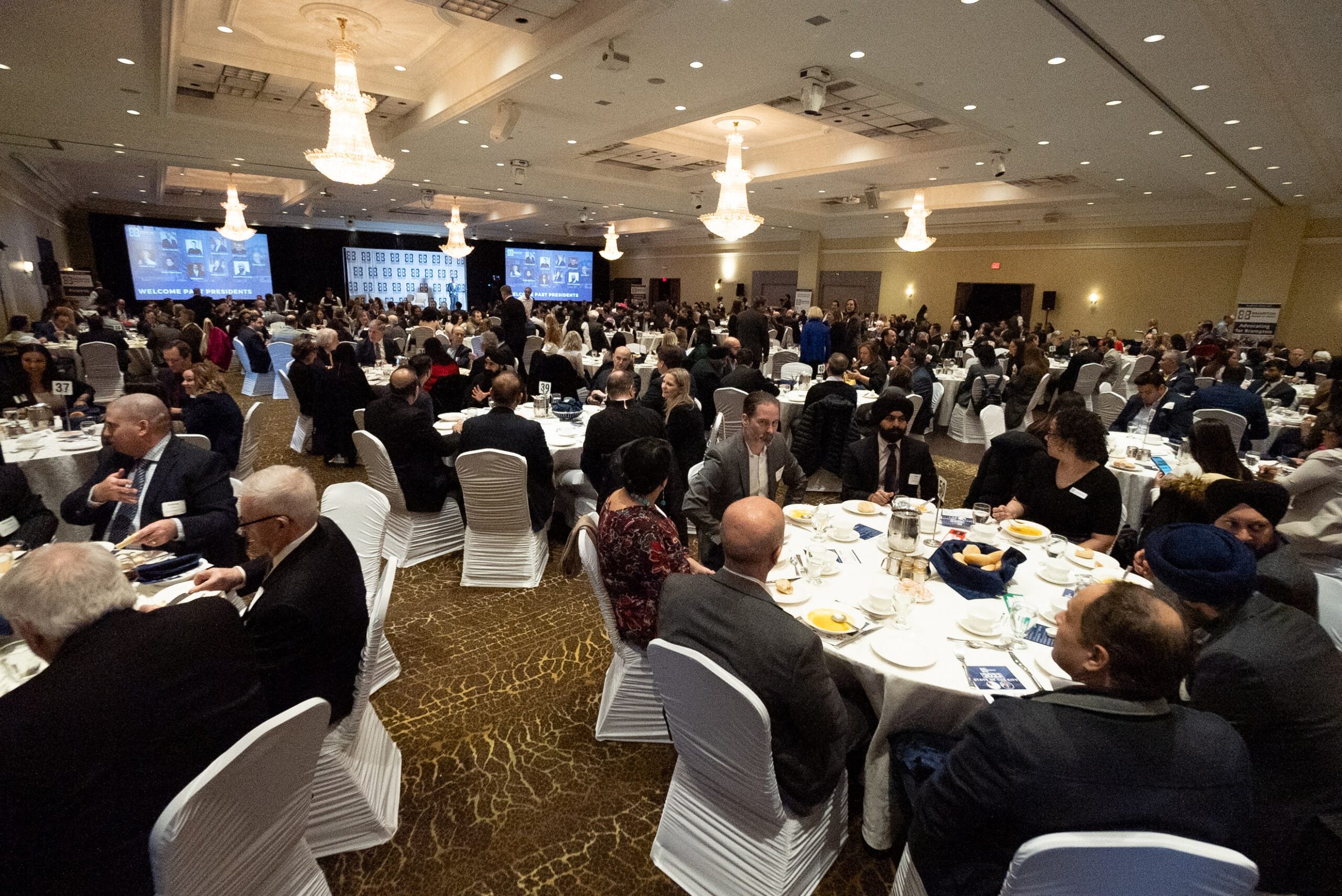In the midst of rising global uncertainty, a new wave of tariffs announced by U.S. President Donald Trump is adding further volatility to the economy — and the impact is being felt far beyond Washington or Wall Street. Here in Brampton, a city deeply tied to global trade and supply chains, these developments aren’t distant headlines — they’re present-day business risks.
As many in the business community are already noticing, what’s playing out today bears striking similarities to one of the most damaging trade policy decisions in modern history: the Smoot-Hawley Tariff Act of 1930. That legislation is widely viewed as a cautionary tale — and it’s one Brampton can’t afford to ignore.
The Ghost of Smoot-Hawley
In 1930, U.S. lawmakers passed the Smoot-Hawley Tariff Act, sharply raising tariffs on over 20,000 imported goods in a bid to protect domestic industries during the Great Depression.
Instead of lifting the U.S. economy, the policy sparked an international trade war:
- Countries retaliated with their own tariffs
- U.S. exports collapsed by over 60%
- Global trade shrank dramatically
- The Depression deepened and spread worldwide
Nearly a century later, economists agree that Smoot-Hawley didn’t protect jobs — it destroyed them. It’s a stark reminder that protectionism can backfire, especially in an interconnected global economy.
Fast Forward to 2025: It’s Beginning to Look Like the 30s
President Trump’s latest round of tariffs is rooted in similar logic: defend American industry, reduce trade deficits, and rebalance relationships with countries like China, Canada, and the EU.
But the effects are already proving disruptive:
- China has retaliated, sparking a new trade war
- The EU and Canada are exploring countermeasures
- Global markets are rattled by policy unpredictability
- Supply chains are under strain, pushing up prices and uncertainty

Brampton: On the Front Lines of Global Trade
As one of Canada’s fastest-growing cities and a central logistics hub in the Greater Toronto Area, Brampton’s economy is tightly linked to international trade.
Here’s how current tariff tensions are affecting Brampton’s business landscape:
Logistics & Transportation
Brampton plays a major role in Canada’s national supply chain. Tariffs disrupt just-in-time delivery systems and increase border delays, leading to higher operational costs for logistics providers — and ultimately their customers.
Manufacturing
Whether it’s automotive parts, electronics, or packaging materials, many Brampton manufacturers depend on imported components. Tariffs from the U.S., China, or the EU mean higher input costs and less competitive pricing.
The technology sector has been hit especially hard. Apple, Microsoft, Nvidia, and other industry leaders have seen billions wiped from their market value. Global tech relies on sprawling international supply chains — and tariffs on components and assembly from China, India, and Vietnam are squeezing profit margins and raising prices.
Apple, for example, now faces tariffs on iPhones assembled in China as well as alternative sites like India and Vietnam, which were meant to help diversify risk. Instead of a solution, they’ve been caught in a multi-front tariff war. The diversification from China was seen as a way to hedge risk, but now with global tariffs enacted by the U.S., Apple is in a bit of a quandary.
Retail & Consumer Goods
Local retailers are facing squeezed margins as tariffs raise the cost of imported goods. Many are forced to choose between passing costs onto consumers or absorbing them — both of which can harm growth.
Nike, for example, has long depended on Chinese factories for production and Chinese consumers for growth. Tariffs now hit both sides of that model. As a result, the company’s stock has tumbled, and analysts are questioning whether its global strategy is sustainable under current trade conditions. Some have suggested this might be a catalyst to sell to other markets to circumvent U.S. tariffs entirely.
Consumer Staples: A Mixed Bag of Resilience and Risk
Traditionally seen as a safe haven in volatile times, the consumer staples sector (think groceries, household goods, utilities) has shown relative stability. Demand for these products remains steady even in a downturn.
But that doesn’t mean the sector is immune. Tariffs on packaging, machinery, or imported ingredients can still squeeze margins.
Why the Smoot-Hawley Comparison Matters
Trump has repeatedly defended his use of tariffs, even suggesting that Smoot-Hawley wasn’t a policy failure. But history — and today’s early data — suggest otherwise:
- Trade deficits aren’t inherently bad. They can reflect a strong economy and high consumer demand.
- Tariffs raise domestic prices. It’s businesses and consumers — not foreign governments — who foot the bill.
- Retaliation is inevitable. As we’ve seen, countries respond in kind — which hurts exporters, farmers, and small businesses.
- Supply chains are global. Disrupting them doesn’t bring jobs back — it often sends them to other low-cost jurisdictions.
Smoot-Hawley taught us that tariff wars are easy to start — and nearly impossible to win.
What Brampton Business Leaders Should Be Watching
As these dynamics unfold, Brampton’s business community has a crucial role to play. Here’s how local leaders can stay ahead:
- Stay informed about shifting trade policies and how they affect your supply chain
- Engage in advocacy through the Brampton Board of Trade to support open, rules-based trade
- Diversify supplier relationships where possible to reduce exposure to specific regions
- Invest in supply chain resilience, from digital tracking to domestic sourcing where feasible
Final Thought
The Smoot-Hawley Tariff Act of 1930 remains a powerful warning about the dangers of protectionism — a warning that feels increasingly relevant in 2025.
For Brampton, where innovation, diversity, and global connectivity are core to our economic DNA, it’s essential we remember this lesson.
Tariffs may promise protection — but history shows they often deliver the opposite.
Let’s not repeat the mistakes of the past. Let’s work together, locally and globally, to keep Brampton’s economy open, competitive, and future-ready. The Built in Brampton Campaign supports companies whose products are made in Brampton, celebrating the interconnectedness of our trade relationship with the U.S. but also emphasizing the importance of supporting local employers.
The Brampton Board of Trade is a platform to connect with businesses from across sectors. If there is any chance for the business community to remain resilience, it is through collective action, which can be facilitated through the network of the Board of Trade. If you want to share your thoughts on how we can move forward together, email me at vsingh@bramptonbot.com.
